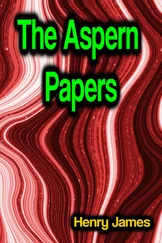Henry James - The American Scene
Здесь есть возможность читать онлайн «Henry James - The American Scene» — ознакомительный отрывок электронной книги совершенно бесплатно, а после прочтения отрывка купить полную версию. В некоторых случаях можно слушать аудио, скачать через торрент в формате fb2 и присутствует краткое содержание. Жанр: unrecognised, на английском языке. Описание произведения, (предисловие) а так же отзывы посетителей доступны на портале библиотеки ЛибКат.
- Название:The American Scene
- Автор:
- Жанр:
- Год:неизвестен
- ISBN:нет данных
- Рейтинг книги:3 / 5. Голосов: 1
-
Избранное:Добавить в избранное
- Отзывы:
-
Ваша оценка:
- 60
- 1
- 2
- 3
- 4
- 5
The American Scene: краткое содержание, описание и аннотация
Предлагаем к чтению аннотацию, описание, краткое содержание или предисловие (зависит от того, что написал сам автор книги «The American Scene»). Если вы не нашли необходимую информацию о книге — напишите в комментариях, мы постараемся отыскать её.
The American Scene — читать онлайн ознакомительный отрывок
Ниже представлен текст книги, разбитый по страницам. Система сохранения места последней прочитанной страницы, позволяет с удобством читать онлайн бесплатно книгу «The American Scene», без необходимости каждый раз заново искать на чём Вы остановились. Поставьте закладку, и сможете в любой момент перейти на страницу, на которой закончили чтение.
Интервал:
Закладка:
There was not flatness, accordingly, though there might be dire dreariness, in some of those impressions gathered, for a climax, in the Berkshire country of Massachusetts, which forced it upon the fancy that here at last, in far, deep mountain valleys, where the winter is fierce and the summer irresponsible, was that heart of New England which makes so pretty a phrase for print and so stern a fact, as yet, for feeling. During the great loops thrown out by the lasso of observation from the wonder-working motor-car that defied the shrinkage of autumn days, this remained constantly the best formula of the impression and even of the emotion; it sat in the vehicle with us, but spreading its wings to the magnificence of movement, and gathering under them indeed most of the meanings of the picture. The heart of New England, at this rate, was an ample, a generous, heart, the largest demands on which, as to extent and variety, seemed not to overstrain its capacity. But it was where the mountain-walls rose straight and made the valleys happiest or saddest—one couldn't tell which, as to the felicity of the image, and it didn't much matter—that penetration was, for the poetry of it, deepest; just as generalization, for an opposite sort of beauty, was grandest on those several occasions when we perched for a moment on the summit of a "pass," a real little pass, slowly climbed to and keeping its other side, with an art all but Alpine, for a complete revelation, and hung there over the full vertiginous effect of the long and steep descent, the clinging road, the precipitous fall, the spreading, shimmering land bounded by blue horizons. We liked the very vocabulary, reduced to whatever minimum, of these romanticisms of aspect; again and again the land would do beautifully, if that were all that was wanted, and it deserved, the dear thing, thoroughly, any verbal caress, any tenderness of term, any share in a claim to the grand manner, to which we could responsively treat it. The grand manner was in the winding ascent, the rocky defile, the sudden rest for wonder, and all the splendid reverse of the medal, the world belted afresh as with purple sewn with pearls—melting, in other words, into violet hills with vague white towns on their breasts.
That was, at the worst, for October afternoons, the motor helping, our frequent fare; the habit of confidence in which was, perhaps, on no occasion so rewarded as on that of a particular plunge, from one of the highest places, through an ebbing golden light, into the great Lebanon "bowl," the vast, scooped hollow in one of the hither depths of which (given the quarter of our approach) we found the Shaker settlement once more or less, I believe, known to fame, ever so grimly planted. The grimness, even, was all right, when once we had admiringly dropped down and down and down; it would have done for that of a Buddhist monastery in the Himalayas—though more savagely clean and more economically impersonal, we seemed to make out, than the communities of older faiths are apt to show themselves. I remember the mere chill of contiguity, like the breath of the sepulchre, as we skirted, on the wide, hard floor of the valley, the rows of gaunt windows polished for no whitest, stillest, meanest face, even, to look out; so that they resembled the parallelograms of black paint criss-crossed with white lines that represent transparency in Nuremberg dolls'-houses. It wore, the whole settlement, as seen from without, the strangest air of active, operative death; as if the state of extinction were somehow, obscurely, administered and applied—the final hush of passions, desires, dangers, converted into a sort of huge stiff brush for sweeping away rubbish, or still more, perhaps, into a monstrous comb for raking in profit. The whole thing had the oddest appearance of mortification made to "pay." This was really, however, sounding the heart of New England beyond its depth, for I am not sure that the New York boundary had not been, just there, over-passed; there flowered out of that impression, at any rate, another adventure, the very bravest possible for a shortened day, of which the motive, whether formulated or not, had doubtless virtually been to feel, with a far-stretched arm, for the heart of New York. Had New York, the miscellaneous monster, a heart at all?—this inquiry, amid so much encouraged and rewarded curiosity, might have been well on the way to become sincere, and we kept groping, between a prompt start and an extremely retarded return, for any stray sign of an answer.
The answer, perhaps, in the event, still eluded us, but the pursuit itself, away across State lines, through zones of other manners, through images of other ideals, through densities of other values, into a separate sovereign civilization in short—this, with "a view of the autumnal Hudson" for an added incentive, became, in all the conditions, one of the finer flowers of experience. To be on the lookout for differences was, not unnaturally, to begin to meet them just over the border and see them increase and multiply; was, indeed, with a mild consistency, to feel it steal over us that we were, as we advanced, in a looser, shabbier, perhaps even rowdier world, where the roads were of an easier virtue and the "farms" of a scantier pride, where the absence of the ubiquitous sign-post of New England, joy of lonely corners, left the great spaces with an accent the less; where, in fine, the wayside bravery of the commonwealth of Massachusetts settled itself, for memory, all serenely, to suffer by no comparison whatever. And yet it wasn't, either, that this other was not also a big, bold country, with ridge upon ridge and horizon by horizon to deal with, insistently, pantingly, puffingly, pausingly, before the great river showed signs of taking up the tale with its higher hand; it wasn't, above all, that the most striking signs by which the nearness of the river was first announced, three or four fine old houses overlooking the long road, reputedly Dutch manors, seats of patriarchs and patroons, and unmistakably rich "values" in the vast, vague scene, had not a nobler archaic note than even the best of the New England colonial; it wasn't that, finally, the Hudson, when we reached the town that repeats in so minor a key the name of the stream, was not autumnal indeed, with majestic impenetrable mists that veiled the waters almost from sight, showing only the dim Catskills, off in space, as perfunctory graces, cheaply thrown in, and leaving us to roam the length of a large straight street which was, yes, decidedly, for comparison, for curiosity, not as the streets of Massachusetts.
The best here, to speak of, was that the motor underwent repair and that its occupants foraged for dinner—finding it indeed excellently at a quiet cook-shop, about the middle of the long-drawn way, after we had encountered coldness at the door of the main hotel by reason of our French poodle. This personage had made our group, admirably composed to our own sense as it was, only the more illustrious; but minds indifferent to an opportunity of intercourse, if but the intercourse of mere vision, with fine French poodles, may be taken always as suffering where they have sinned. The hospitality of the cook-shop was meanwhile touchingly, winningly unconditioned, yet full of character, of local, of national truth, as we liked to think: documentary, in a high degree—we talked it over—for American life. Wasn't it interesting that with American life so personally, so freely affirmed, the superstition of cookery should yet be so little denied? It was the queer old complexion of the long straight street, however, that most came home to me: Hudson, in the afternoon quiet, seemed to stretch back, with fumbling friendly hand, to the earliest outlook of my consciousness. Many matters had come and gone, innumerable impressions had supervened; yet here, in the stir of the senses, a whole range of small forgotten things revived, things intensely Hudsonian, more than Hudsonian; small echoes and tones and sleeping lights, small sights and sounds and smells that made one, for an hour, as small—carried one up the rest of the river, the very river of life indeed, as a thrilled, roundabouted pilgrim, by primitive steamboat, to a mellow, medieval Albany.
Читать дальшеИнтервал:
Закладка:
Похожие книги на «The American Scene»
Представляем Вашему вниманию похожие книги на «The American Scene» списком для выбора. Мы отобрали схожую по названию и смыслу литературу в надежде предоставить читателям больше вариантов отыскать новые, интересные, ещё непрочитанные произведения.
Обсуждение, отзывы о книге «The American Scene» и просто собственные мнения читателей. Оставьте ваши комментарии, напишите, что Вы думаете о произведении, его смысле или главных героях. Укажите что конкретно понравилось, а что нет, и почему Вы так считаете.












